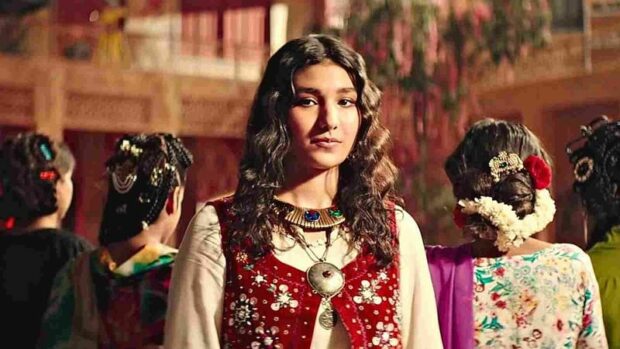
A few months ago, Coke Studio produced a magnificent song that quickly climbed to the top of local and international music charts. Like many other overseas Pakistanis, I found myself grooving nonstop to the awesome beats of ‘Pasoori’ while touring the spectacular South Island of New Zealand.
The musicians, Ali Sethi and Shae Gill became household names and social media was swamped with accolades for both (which, by the way, is how I got to know about it as well). While Ali Sethi was already a renowned singer, not many people knew about Shae prior to the release of ‘Pasoori’. This song’s instant success resulted in millions following Ms. Gill and being completely bowled over by her melodious voice and sweet demeanor.
The masses soon wanted to know more about the ‘Pasoori’ girl and who she was. Her academic affiliation, her personal life, and her likes and dislikes soon became the focus of interest for many. Amongst all this information digging about the new celebrity, it was assumed that like 97% of the population, she also identifies as a Muslim. This is often the case in Muslim majority institutions/regions where it is not uncommon for religious minorities to be bombarded with questions/ comments like, “Are you really a Christian?” “Seriously?” and “You don’t look like one”.
READ MORE: ‘I’m a Christian’ – Singer Shae Gill addresses hate for mourning Sikh rapper
Having spent my entire childhood and most of my adult life in Lahore, Pakistan, and being affiliated with two Muslim-majority educational setups, I can testify to the fact that once your religious identity surfaces, something changes about the way people see you. You soon become a key representative of your religious sector and your individuality somehow becomes less significant.
If we consider this from a Social Identity perspective, the group that one belongs to (the ingroup) has shared values that vary greatly from the other group (the outgroup). This grouping could be based on gender, social class, academic achievement, ethnicity or religion, to name a few.
According to Henri Tajfel (1979), these groups provide an important source of self-esteem and pride. Membership or belonging to a certain social group causes individuals to start viewing ‘us’ as superior to ‘them’, also known as social categorisation. This holds true for any group membership if taken too seriously.
READ MORE: ‘Shahid Afridi mistreated me, forced to convert to Islam,’ Danish Kaneria claims
For instance, a number of Pakistanis would have experienced being outcast at airport security lines or elsewhere because of their green passports. Some women may have experienced the same while visiting a male-dominated workplace or environment. The same also holds true for religious minorities when they are sitting at the same table as religious majority group members– they may feel like the odd one out.
In Pakistan, a country founded on the very principle that two religious sects could not co-exist, religious identity seems to take the number one priority. Research in this area also highlights that religious identity often drives social and political identities as well. In such a country, being recognized as a Muslim would be a source of pride, but alongside it often stirs up prejudiced feelings towards those identifying with a different religion. Often this results in young girls and boys trying to hide their religious identities or at least not boldly declaring their religion.
READ MORE: Christian policeman accuses senior officer of religious prejudice
However, in Shae Gill’s case, this is not what happened. She shared a post on Instagram offering prayers for a Sikh singer who had just passed away. Soon after, she was brutally attacked by trolls for offering prayers for an outgroup member. Shae replied back by saying that she belonged to a Christian family and herself identified as a Christian and therefore could offer prayers for whoever she wanted to.
It is indeed commendable how this young talented woman rose up chivalrously to the situation and testified her religious roots and identity. Soon after this revelation, hate messages started to pour in about how she needs to remember that she lives in Pakistan which is a Muslim-majority country. The post implied that she may belong to a different group but she must not offer prayers for non-Muslims.
Talk about freedom of speech, this country lacks basic mannerism in all senses of the word. So while this strong religious identity is a source of pride for Muslims, it is also inevitably a source of prejudice towards any non-Muslim individuals.
The true impact of Shae’s revelation is yet to be known. One is also compelled to wonder if the lens with which people view her will become slightly tainted after finding out that she is not a Muslim. Another thought also crosses the mind, what if she had been introduced as a Christian first and then as a talented singer? Would people have reacted differently to her talents?
Given the strong religious identity that is prevalent amongst the masses and the religious ‘honour’ that can be quickly threatened, it will not be surprising if Shae continues to receive hate comments/ threats because she has revealed that she is an outgroup member and will no longer be viewed with pride as one of ‘us’, but likely with prejudice as one of ‘them’.